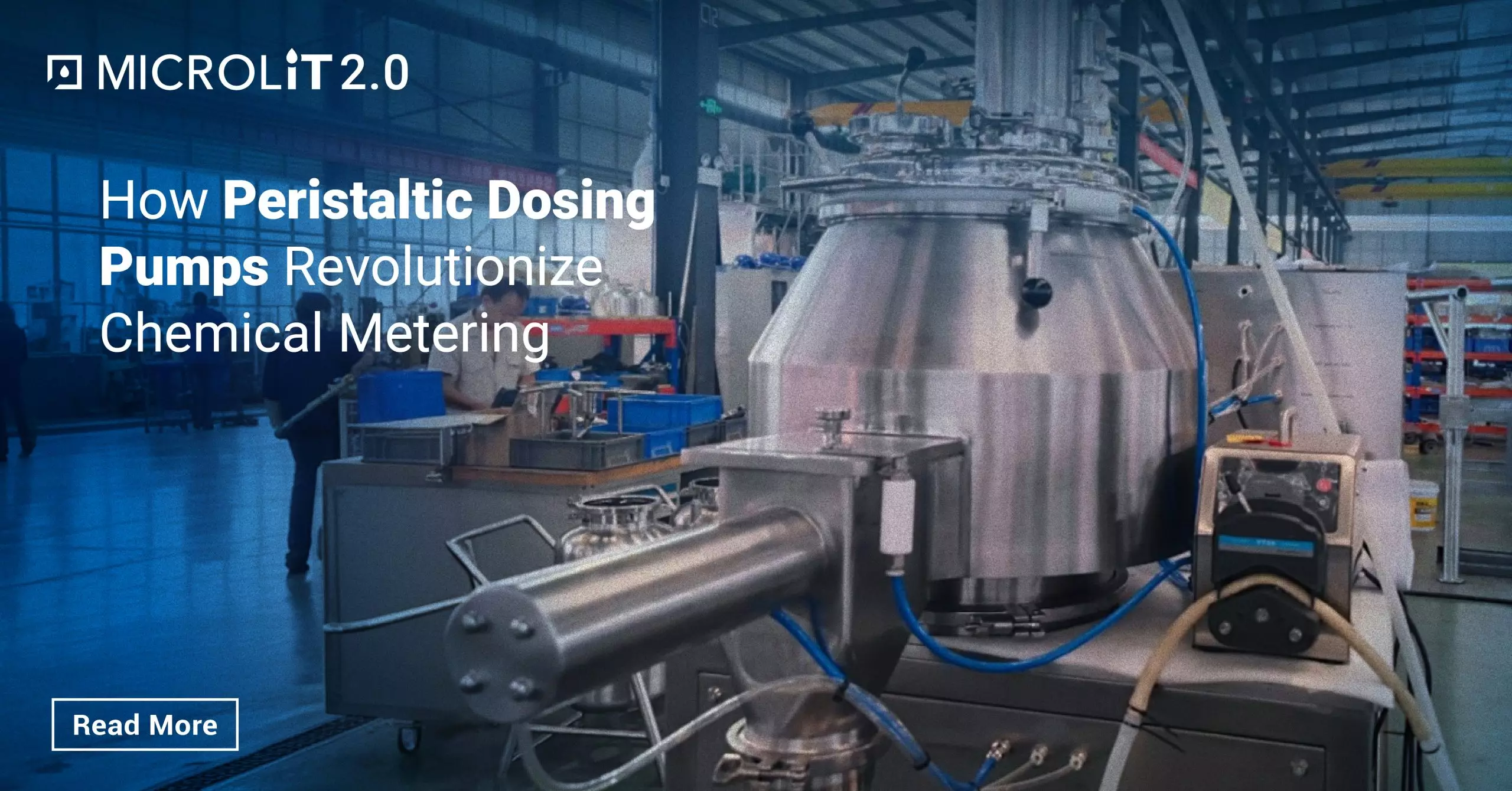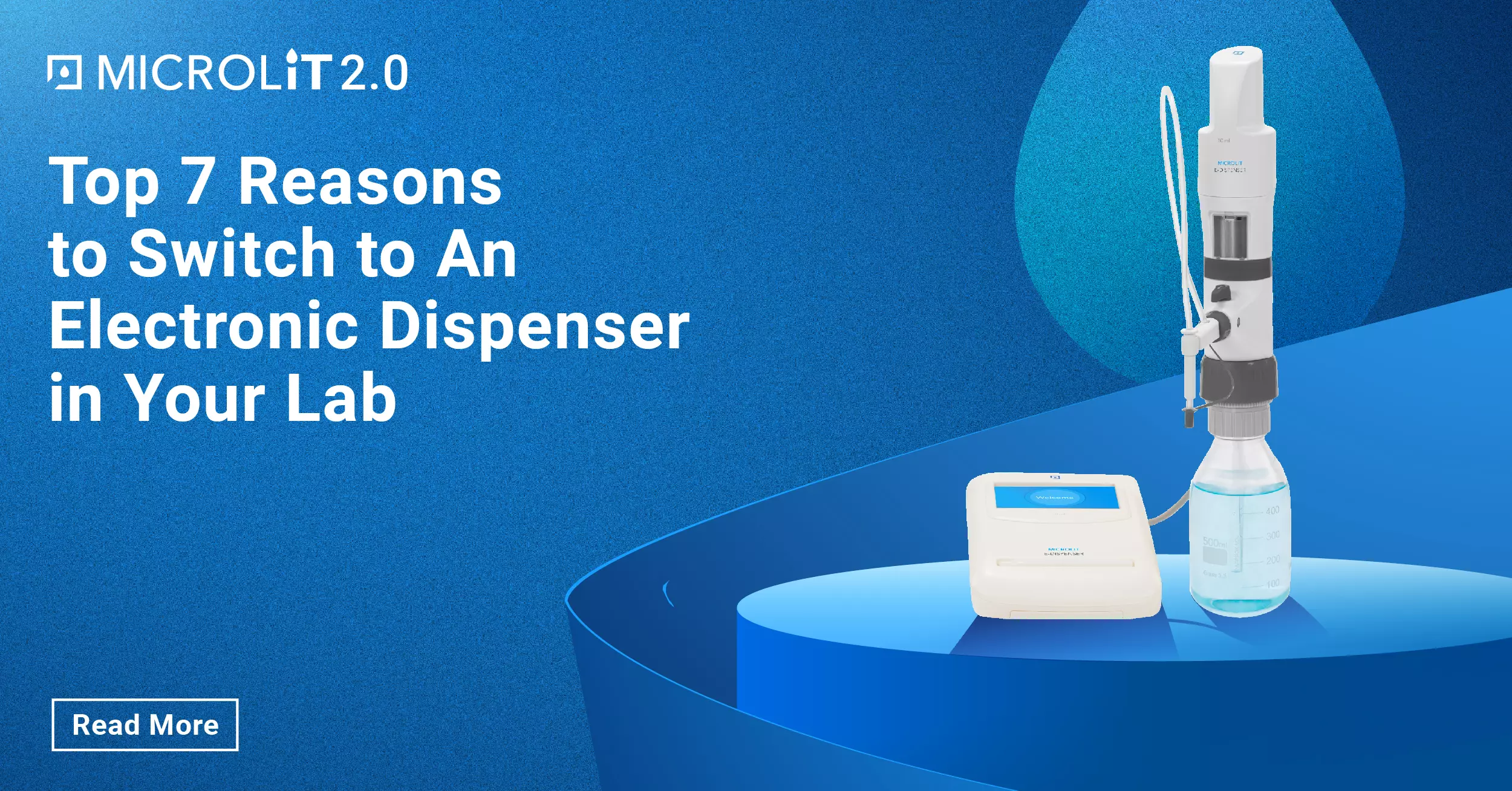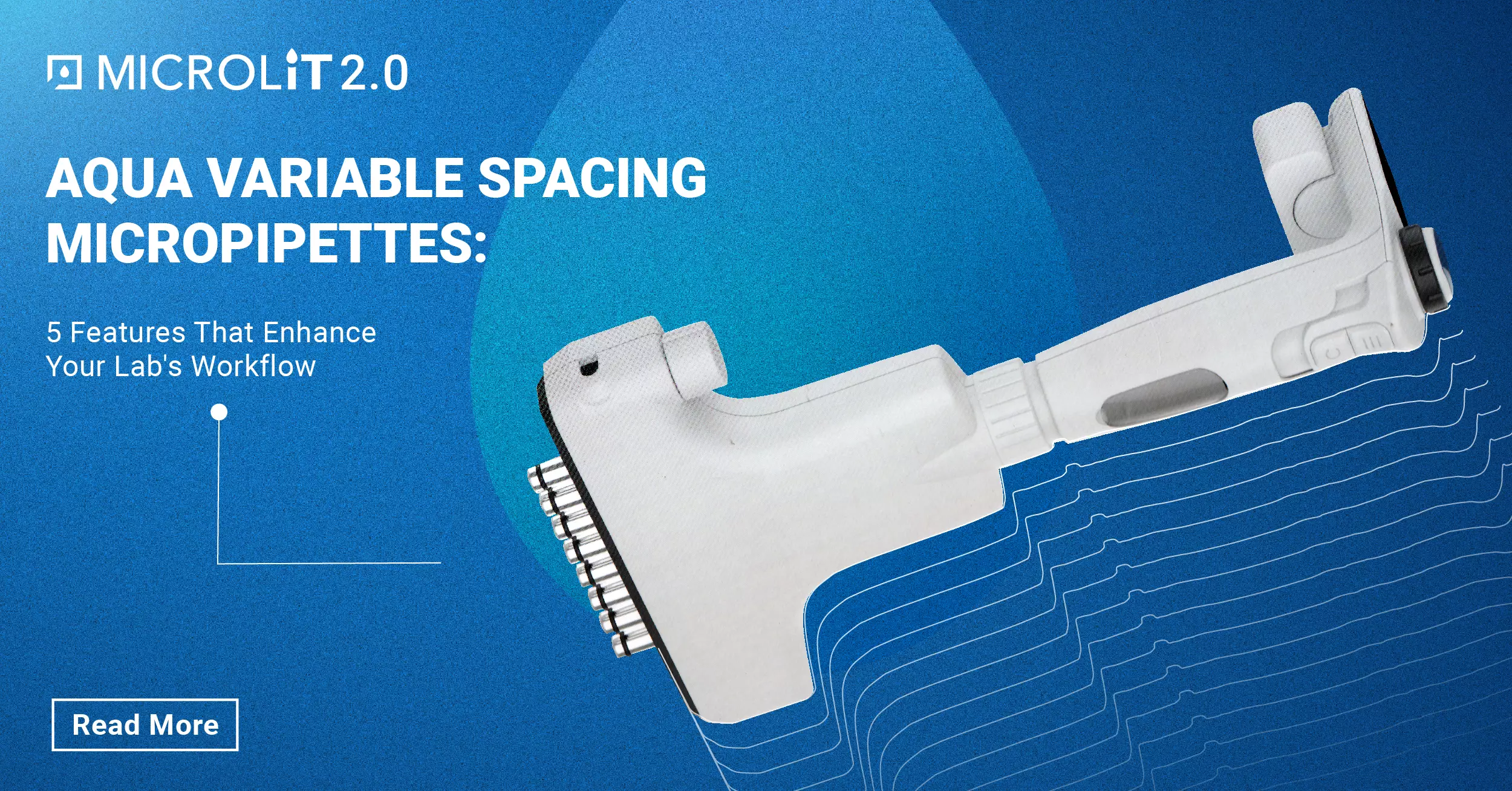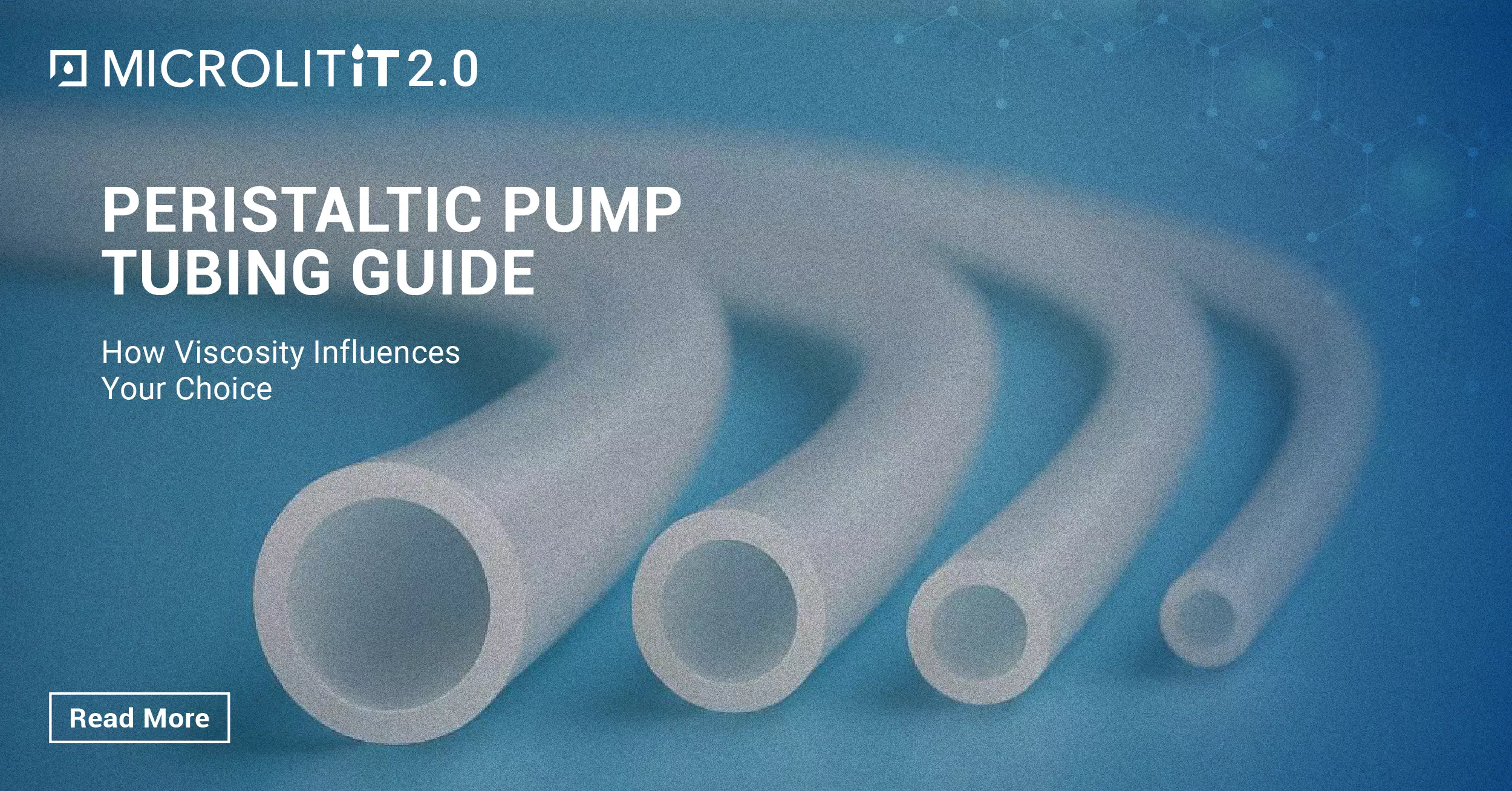Maximising Efficiency with Multichannel Pipettes – Applications & Benefits
- December 6, 2023
- ENQUIRE NOW
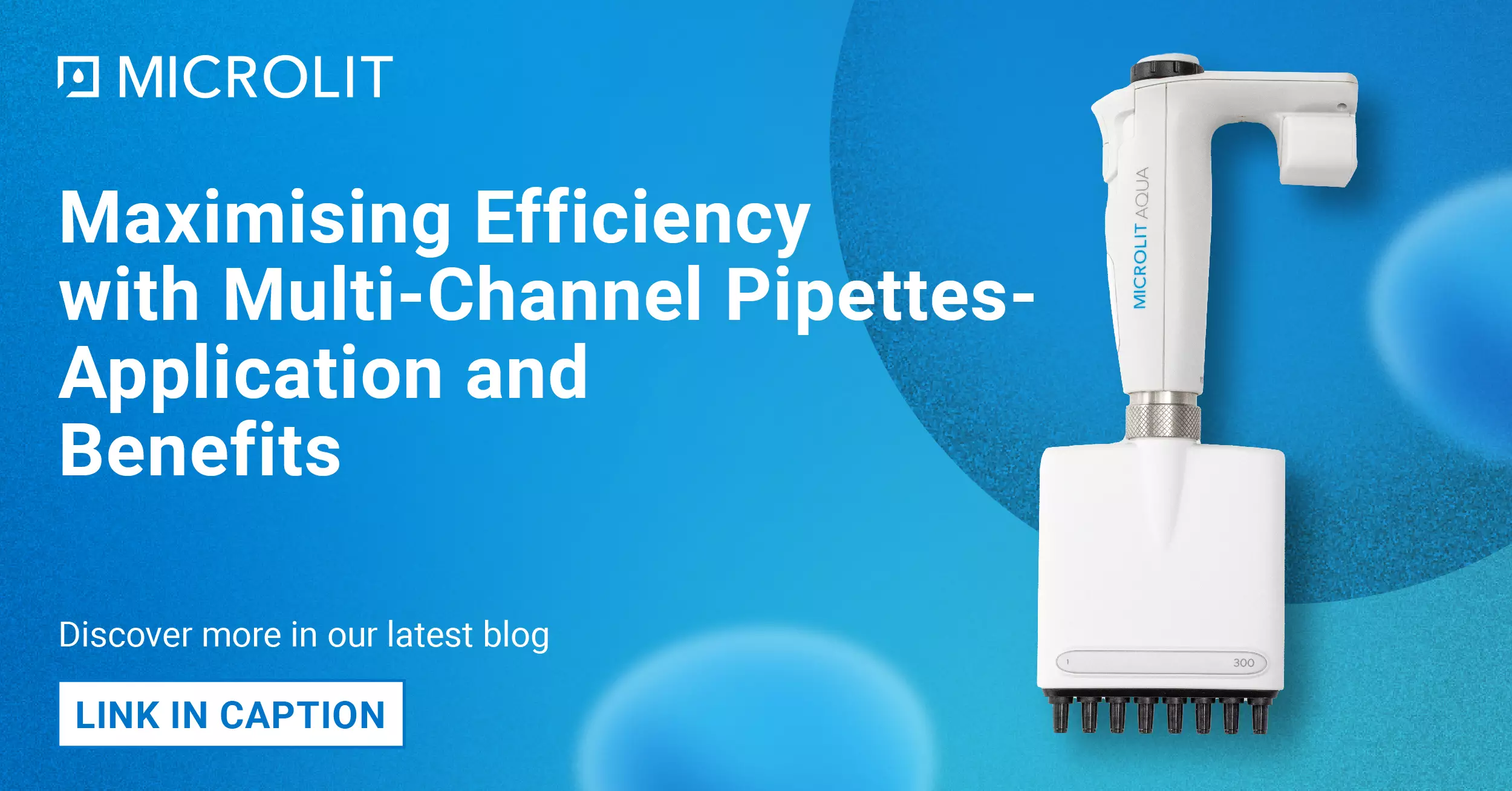
What is a multichannel micropipette?
A multichannel micropipette is a specialised laboratory tool designed for transferring multiple volumes of liquid simultaneously. These pipettes are equipped with several channels, typically 8, 12, or 16, each with its tip, allowing one to efficiently dispense liquids into multiple wells of a microplate or other multi-well plate.
Setting up assays that test numerous samples and replication can be tedious. As throughput increases, using a single channel pipette for each sample and reagent transfer becomes a burden. Researchers become fatigued as they move the pipette plunger up and down hundreds of times to fill a 96- or 384-well plate, leading to inconsistent liquid transfers and unreliable results. The repetitive motions associated with pipetting can strain and damage the hand, arm, and shoulder.
 Multichannel pipettes provide a solution to this problem. Transferring multiple samples at once increases experimental reproducibility and decreases the number of pipetting actions. An even greater pain point comes when pipetting to and from different vessels. Standard multichannel pipettes do not work if a researcher needs to move samples from microfuge tubes to plates, for example, because the distance between each tip required to fit into a line of tubes is different from the distance required to dispense accurately into a well plate. These pipettes allow scientists to quickly and accurately transfer liquids between multiple wells, which is essential for many laboratory techniques.
Multichannel pipettes provide a solution to this problem. Transferring multiple samples at once increases experimental reproducibility and decreases the number of pipetting actions. An even greater pain point comes when pipetting to and from different vessels. Standard multichannel pipettes do not work if a researcher needs to move samples from microfuge tubes to plates, for example, because the distance between each tip required to fit into a line of tubes is different from the distance required to dispense accurately into a well plate. These pipettes allow scientists to quickly and accurately transfer liquids between multiple wells, which is essential for many laboratory techniques.
The growth of the drug discovery market and the development of new techniques such as serological testing, molecular biology, immunology assays, high throughput screening and polymerase chain reaction have all led to an increase in the use of microtiter plates. As a result, scientists are now working with more samples than ever before and they need efficient tools to help them keep up with the workload.
Applications of Multichannel Micropipettes
Multichannel micropipettes are essential tools in microbiology, chemistry, and medical testing laboratories. They are used to accurately and precisely transfer small volumes of liquid, typically in the microliter range. This makes them ideal for a wide range of applications, including:
• Molecular biology: Multichannel Micropipettes are used to transfer DNA, RNA, and other proteins for a variety of experiments, such as PCR and DNA sequencing.
• Microbiology: Multichannel Micropipettes are used to transfer bacteria, viruses, and other microorganisms for a variety of experiments, such as culturing and testing for antibiotics.
• Immunology: They are used to transfer antibodies and other proteins for a variety of experiments, such as ELISA and Western blotting.
• Cell Culture: They are used to transfer cells and media for a variety of experiments, such as cell counting and viability assays.
• Analytical Chemistry: They are used to transfer small volumes of chemicals for a variety of experiments, such as titrations and spectrophotometry.
• Biochemistry: They are used to transfer small volumes of enzymes, proteins, and other biochemicals for a variety of experiments, such as enzyme assays and protein purification.
• Genetics: They are used to transfer DNA for a variety of experiments, such as restriction digests and gel electrophoresis.
Key Benefits of using Multichannel Micropipettes
• Increased efficiency: By transferring multiple volumes at once, you can significantly reduce the time it takes to fill or aspirate liquids from multi-well plates. This is particularly beneficial for applications like high-throughput screening and ELISA assays.
• Improved accuracy and precision: Multichannel micropipettes are designed to deliver precise volumes consistently across all channels, ensuring reliable results in your experiments.
• Reduced risk of Repetitive Strain Injuries (RSIs): Compared to single-channel pipettes, multichannel pipettes require less hand movement and can help prevent fatigue and RSIs associated with repetitive pipetting tasks.
• Enhanced workflow: Multichannel pipettes streamline liquid handling tasks, allowing you to focus on other aspects of your research and improve overall lab productivity.
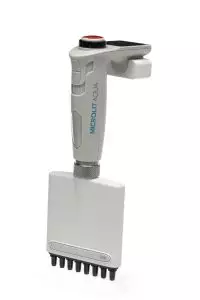 At Microlit, we understand the critical role precise liquid handling plays in the success of modern laboratories. That’s why we are dedicated to designing and developing innovative instruments that empower researchers to achieve remarkable results.
At Microlit, we understand the critical role precise liquid handling plays in the success of modern laboratories. That’s why we are dedicated to designing and developing innovative instruments that empower researchers to achieve remarkable results.
Our advanced multichannel micropipette range embodies this commitment. We believe in providing not just accuracy and precision, but also a user experience that enhances your workflow and fosters a productive laboratory environment.
Explore our comprehensive product line including newly launched AQUA multichannel electronic pipette at https://www.microlit.com/products/ to discover how Microlit can elevate your research to the next level.


